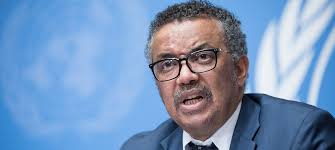The 71st session of the Regional Committee of the World Health Organization (WHO) for Africa, held online as last year, has put the fight against the new coronavirus at the top of the continent’s priorities.
By Ibrahima Dione
On Tuesday, 47 African health ministers and country representatives met virtually to set their health agenda.
Opening the three-day annual gathering, Victoire Tomegah Dogbé, Togo’s Prime Minister, said that “COVID-19 has demonstrated the urgent need for global solidarity, highlighting the need for each country to seek the best protection, both individual and collective.”
The WHO Director General, Tedros Adhanom Ghebreyesus invited African countries “to support an international treaty or other legal instrument to improve international cooperation on pandemic preparedness and response.”
In November 2021, the former Ethiopian Foreign Minister said, this treaty could be discussed at the special session of the World Health Assembly.
For the WHO boss, “the vaccine crisis illustrates the fundamental weakness at the root of the pandemic: the lack of global solidarity and sharing of information and data, biological samples, resources, technology and tools.
The lack of access to COVID-19 vaccines for poor countries calls for “rethinking systems that enhance equity and investing more in the development of a healthier and fairer world,” said Dr Matshidiso Moeti, WHO Regional Director for Africa.
In addition to COVID-19, Africa’s largest public health meeting will focus on efforts to end all forms of polio, eliminate cervical cancer, which by 2020 will kill more than 72,000 African women, and strengthen the use of health-related technologies.
The meeting will also discuss measures to improve healthy ageing on the continent, as well as strengthening the fight against tuberculosis, HIV, sexually transmitted infections and hepatitis, and ending meningitis by 2030.
ID/lb/as/APA


